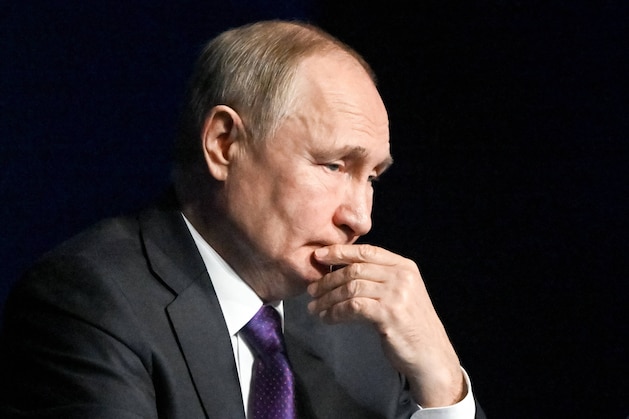The West’s decision to supply Ukraine with modern battle tanks is a great opportunity. Now a window for negotiations will open.
Now the Russians know what’s coming, and that’s also a great opportunity for diplomacy: the entire West, including the United States, is opposing them in Ukraine. That and nothing else is the political signal sent by the decision to supply Ukraine with high-tech tanks from the West.
Sending American Abrams, German Leopards, British Challengers and probably French Leclerc main battle tanks to Ukraine is a new quality – a decision that will change this war. Only now does Ukraine have the chance to recapture areas occupied by the Russians.
This West decision is a declaration of war on the Russians. For the time being and until the first Western-style tank is in Ukraine, it’s just a threat. A mighty one, but still not a reality, but merely the announcement of a new reality.
That opens up scope for diplomacy, for negotiations. And they can certainly be successful – unless the Russians refuse to take the signal sent by the Western Allies’ decision seriously. There is a great historical precedent:
The military-political if-then logic has already worked impressively once before – with the NATO double-track decision in the late 1970s and early 1980s. At that time, NATO threatened Russia with the stationing of medium-range nuclear missiles if it itself did not refrain from deploying these missiles. The result was the largest disarmament in Cold War history.
It could be like this again now. This is the West’s negotiating offer to the Russians: if necessary, we will provide Ukraine with everything it needs, unless you withdraw your military from this country. So now the ball is in the hands of the Russians.
Vladimir Putin will know what that means, because it corresponds exactly to his own logic. The sole ruler understands only one language – violence. Now he can see that he misjudged the West — the countries he considered morally rotten, militarily effeminate, and peace-crazed are confronting him with determination and unity.
The Germans too. They go very far for that. They are breaking with their own state doctrine – the illusionary assumption that everlasting peace would have broken out with the epochal break of 1990. That was the reason for the Bundeswehr’s saving to death: people in Berlin thought that after the fall of the Soviet Union, the rule of law could take the place of the military logic of deterrence. Treaties instead of weapons, that was the beautiful, pacifist, also economic, vision.
It was belied by the harsh, ugly reality created by one man, Vladimir Putin. The West should have seen that earlier – and should have seen that earlier – back in 2007, when Putin made his first big violent speech, and then when he attacked Georgia, and Moldova and Ukraine. The West has closed its eyes – Germany not alone, but especially gladly.
The policy of closed eyes, of self-imposed blindness, which Gerhard Schröder and Angela Merkel and Horst Seehofer and Guido Westerwelle and Frank Walter Steinmeier and Sigmar Gabriel and Olaf Scholz opted for, also followed an economic logic: cheap Russian energy secured Germany’s prosperity , doubters were fobbed off with the phrase “change through trade”.
But that had been a misconception for a long time, basically since Willy Brandt’s time. Despite increasing trade with Germany and the West, the Soviet Union has not changed. The short, albeit significant global thaw, the Gorbachev and Yeltsin years, was a result of Russian weakness: the country was simply bankrupt.
Russia is heading into this bankruptcy again, not only because of Western sanctions. But because Putin is quite simply a terribly bad ruler who has always preferred his own power to the prosperity of his people. A large part of the Russian elite is therefore long gone – those who wanted to make something of themselves in Russia left long before Putin.
That’s the situation. Now is the time for diplomacy. More precisely: She could come. It depends on the Russians. It’s worth looking at the inner core of diplomacy. Then:
The essence of diplomacy is not the administration of peace, but its making.
The essence of diplomacy is not the exchange of friends, but negotiation with enemies. Therefore, a window has just opened for negotiations.















